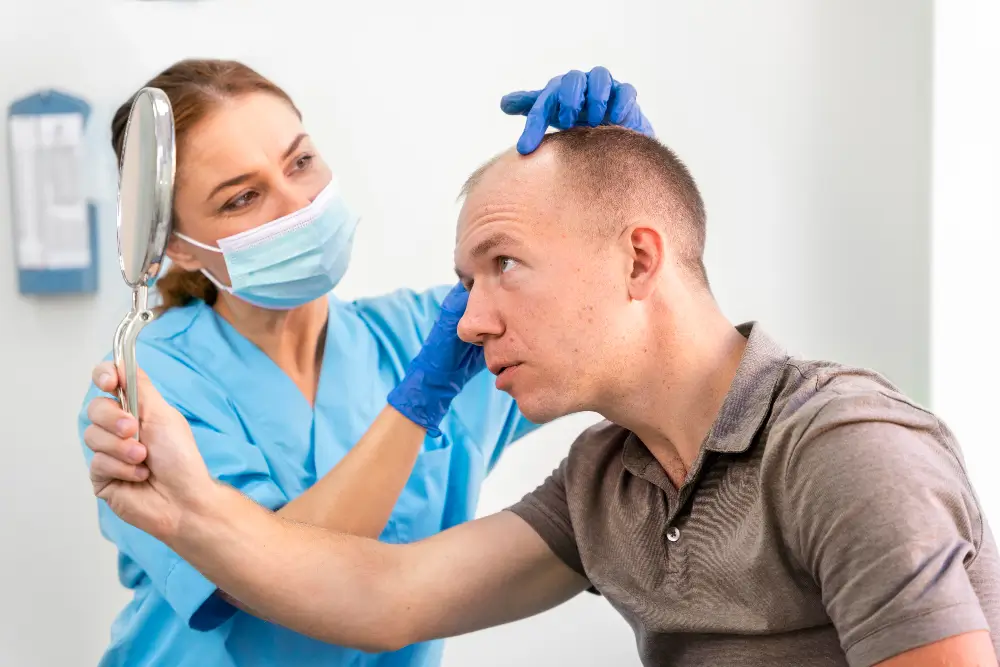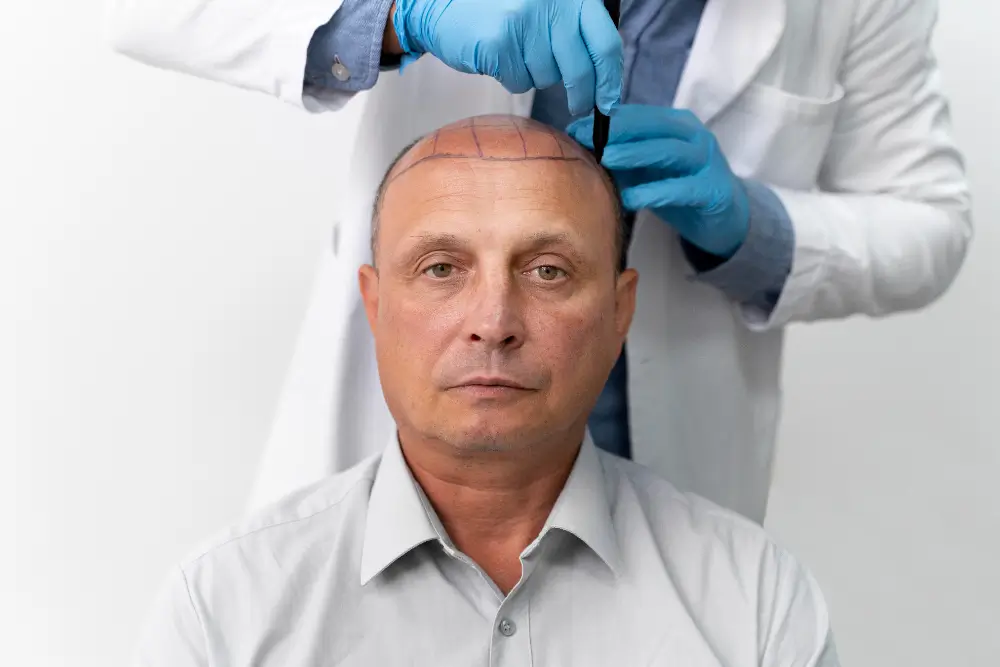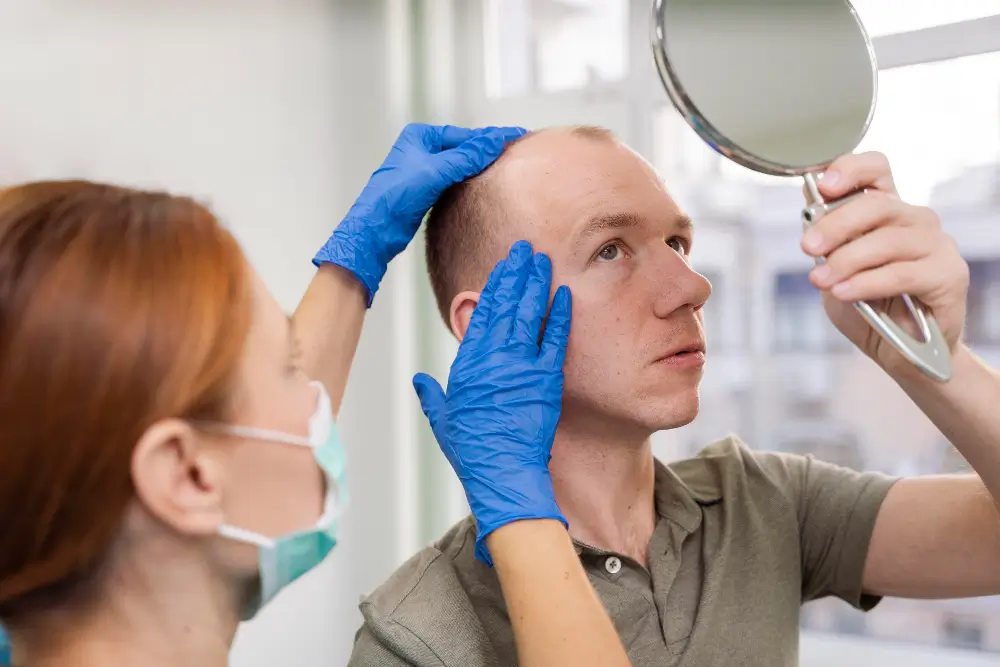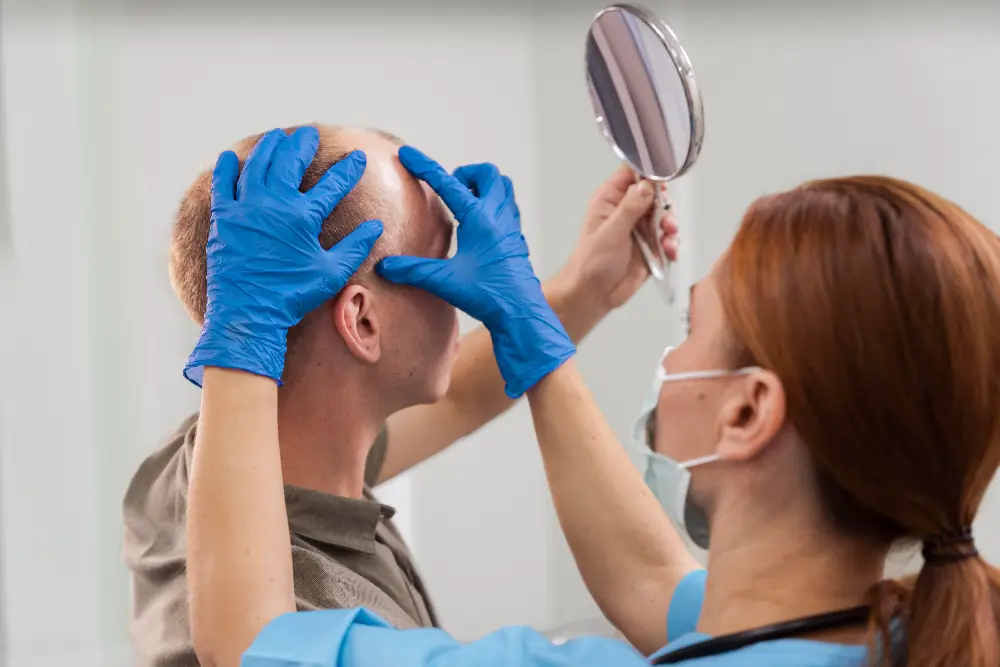What is Craniofacial Surgery for Congenital Conditions?
Common Congenital Conditions Treated with Craniofacial Surgery

1. Craniosynostosis
Craniosynostosis occurs when one or more of the sutures in a baby’s skull close prematurely, resulting in abnormal head shapes and, in severe cases, increased intracranial pressure.
Types of Craniosynostosis:
- Sagittal: Causes a long, narrow head shape.
- Coronal: Leads to asymmetry in the forehead and eye area.
- Metopic: Creates a triangular forehead shape.
- Lambdoid: Results in flattening at the back of the skull.
- Treatment: Surgery repositions the bones of the skull to allow for normal brain growth and head shape.

2. Cleft Lip and Palate-Associated Deformities
While cleft lip and palate repair addresses the immediate concern, some patients require craniofacial surgery for associated issues such as maxillary (upper jaw) underdevelopment.
Treatment: Corrective procedures enhance facial balance and function.

3. Apert Syndrome and Crouzon Syndrome
Both are genetic conditions involving premature fusion of cranial sutures, often accompanied by facial deformities.
Treatment: Surgical correction addresses cranial shape, orbital (eye socket) positioning, and midface development.

4. Treacher Collins Syndrome
This rare genetic disorder causes underdevelopment of the cheekbones, jaw, and other facial structures.
Treatment: Surgery enhances facial symmetry, improves airway function, and restores aesthetics.

5. Hemifacial Microsomia
A condition where one side of the face is underdeveloped, affecting the jaw, ear, and cheek structures.
Treatment: Reconstructive procedures restore symmetry and function.

6. Pierre Robin Sequence
Characterised by a small lower jaw (micrognathia) that can cause breathing and feeding difficulties.
Treatment: Jaw surgery or airway management procedures address functional concerns.
Advanced Techniques in Craniofacial Surgery
Cranial Vault Remodeling
Distraction Osteogenesis
Orbital Reconstruction
Midface Advancement
Timing and Multidisciplinary Approach
Craniofacial surgery often involves a multidisciplinary team, including plastic surgeons, neurosurgeons, orthodontists, and speech therapists, to provide comprehensive care.
- Timing of Surgery: Many congenital conditions require early intervention, typically in infancy or early childhood, to optimise functional and aesthetic outcomes. However, some procedures may be staged as the patient grows.
Benefits of Craniofacial Surgery
- Restored Functionality: Improves breathing, speech, vision, and feeding.
- Enhanced Appearance: Addresses asymmetry and other aesthetic concerns.
- Improved Confidence: Empowers patients to lead fulfilling lives.
- Holistic Care: Combines functional and aesthetic outcomes for comprehensive results.
Why Choose Prof Chrysis Sofianos for Craniofacial Surgery?
Prof Chrysis Sofianos brings world-class expertise and advanced surgical techniques to the treatment of congenital craniofacial conditions. With a patient-centred approach, he ensures compassionate care and life-changing outcomes.
- Specialised Training: Extensive experience in complex craniofacial procedures.
- Comprehensive Care: From diagnosis to recovery, Prof Sofianos provides seamless, multidisciplinary care.
- Personalised Solutions: Every surgical plan is tailored to the unique needs of the patient.
Your Craniofacial Surgery Journey
1. Personalised Consultation
During your consultation, Prof Sofianos will:
- Conduct a detailed evaluation of the congenital condition.
- Discuss the surgical plan, timeline, and expected outcomes.
- Provide guidance on pre- and post-operative care.
2. Surgical Procedure
Using state-of-the-art techniques, Prof Sofianos performs craniofacial surgeries with precision, focusing on both functional and aesthetic restoration.
3. Recovery and Follow-Up
- Recovery: Initial healing occurs within weeks, but complete recovery may take months, depending on the procedure.
- Follow-Up: Regular monitoring ensures optimal results and ongoing support for functional development.
FAQs About Craniofacial Surgery
1. At what age should craniofacial surgery be performed?
The timing varies by condition. Craniosynostosis, for example, is typically addressed in infancy, while other procedures may be staged as the child grows.
2. Are craniofacial surgeries covered by medical insurance?
Many congenital conditions qualify as medically necessary, and surgery is often covered by insurance. Check with your provider for specific details.
3. Is craniofacial surgery painful?
Surgery is performed under general anaesthesia, ensuring no pain during the procedure. Post-operative discomfort is managed with medication.
4. Can adults undergo craniofacial surgery for congenital conditions?
Yes, adults can benefit from craniofacial surgery to address unresolved congenital issues or improve aesthetics and function.
Table of Contents
Transform lives with expert craniofacial surgery for congenital conditions at Prof Chrysis Sofianos Plastic Surgery Johannesburg. Contact us today to schedule your consultation and learn how our personalised care and advanced techniques can make a difference for you or your child.
